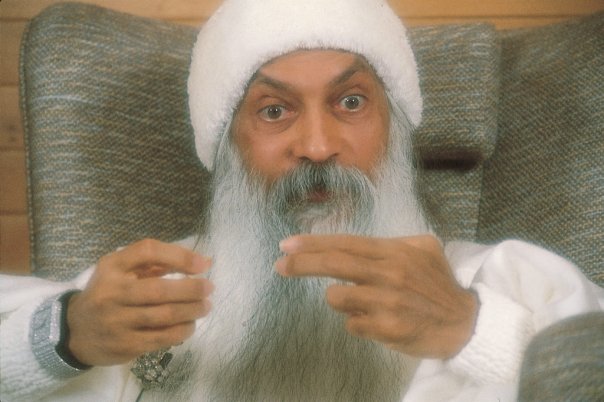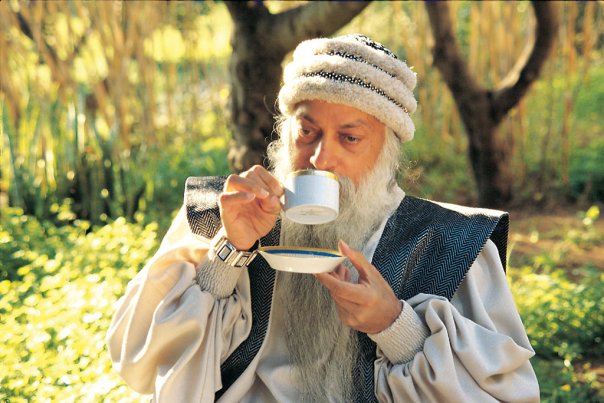奥修关于放弃的名言
- 放弃意味着: 无论你在哪, 没有必要放弃这些东西,因为首先你从未拥有它们. 谈出离是愚蠢的. 这意味着好像你是拥有者,现在你正在放弃. 你怎么能放弃你从未拥有的东西? 放弃意味着开始知道你无法拥有任何东西. 您可以使用, 最多, 但你不能拥有. 你不会永远在这里 — 你怎么能拥有? 拥有任何东西是不可能的. 您可以使用,您可以感谢他们允许自己使用的东西. 您应该感谢他们允许自己使用的事情. 他们成为手段, 但是你不能拥有它们.
- 放弃所有权的想法是放弃. 放弃不是放弃所有物,而是占有欲. 这就是Gurdjieff所说的未识别的. 这就是鲍尔斯所说的意识到的‘ardhar manush’ — 必不可少的人. 这就是禅宗人所说的原始面孔.
- Zen说逃脱不是放弃 — 那也是我的信息.
- 记住, 如果你因失败而放弃了世界,那不是放弃, 这不是桑雅生, 这不是真的. 如果你通过理解而放弃世界, 那是完全不同的. 你不会因为悲伤的努力而放弃它, 内心充满挫败感, 到处都是失败. 你这样做不像自杀, 记住. 如果你的桑雅生是自杀, 那么鲜花就不会洒在你身上 — 那么你就要离开了….
- 坐在寺庙和修道院里的僧侣,穆尼斯和萨杜斯, 在喜马拉雅山洞里, 只是逃避现实. 放弃! — 但是没有必要逃脱. 放弃,仍然在这里. 在世界上, 但不要属于世界. 留在人群中并保持一个人. 做一千件事 — 需要什么, 做 — 但是永远不要做事. 不要聚集自我 — 就这样.
- 我称一个男人为桑雅生,他从这些机构中脱颖而出并自发地生活. 成为桑雅生是最勇敢的行为. 成为桑雅生意味着没有思想的生活, 当您没有脑海的生活时,您就没有社会生活. 思想创造了社会, 社会创造了思想; 它们是相互依存的. 成为桑雅生意味着放弃所有错误,但不要放弃世界, 放弃所有不真实的, 放弃所有答案, 响应迅速, 自发响应, 而不是考虑原因, 但是是真实的.
- 当你冥想, 永远记住,外围不会永久丢失. 您必须一次又一次地来到外围,以便路线保持清晰,路径仍留在那里. 因此,我坚持冥想,但不放弃世界. 早上冥想,然后去市场; 早上冥想,然后去你的办公室. 冥想然后做爱! 不要产生任何二分法, 不要造成任何冲突.
- 记住: 如果您放弃思想和生活,那您就是一个真正的桑雅生; 如果您放弃生活和生活的思想, 你是一个伪苏嫩辛. 并记住好, 成为伪总是很容易; 真实总是很困难. 和妻子一起生活和幸福真的很困难; 和孩子一起生活和幸福真的很困难. 在商店工作, 在办公室, 在工厂里,欣喜若狂是真正的困难. 离开一切,坐在树下并感到快乐并不困难 — 任何人都会有这种感觉. 无事可做, 你可以被超越; 一切要做, 你变得依恋. 但是当你做一切并保持无关, 当你和人群一起移动, 在世界上,却一个人, 然后发生了什么事.
- 我不是说要成为乞丐, 我不是说放弃这个世界. 我的意思是在世界上但不属于世界. 不要在里面堆积, 虚心. 从不拥有任何东西 — 然后你准备好死了. 占有欲是问题, 不是生活本身. 你拥有的越多, 越害怕失去. 如果你一无所有, 如果你的纯洁, 如果你的精神没有被任何东西污染, 如果你只是一个人在那里, 你可以随时消失; 每当死亡来敲门,它就会发现你已经准备好了. 你没有失去任何东西. 与死同行,你不是失败者. 你可能正在进入一个新的体验.
- 头脑非常聪明. 如果你说, ‘丢钱’ 头脑说, '好的. 我可以坚持冥想吗?’ 如果你对头脑说, ‘放弃世界’ 头脑说, '好的. 我现在可以拥有精神经历吗?’ 如果你说, ‘放弃世界’ 头脑说, ‘我可以放弃世界, 但是现在我要坚持上帝的想法。’
- 不要沉迷太多,不要放弃太多. 不要仅仅在世界上,也不要逃脱. 继续保持平衡. 当您觉得您现在陷入过多的放纵时, 倾向于放弃, 当您觉得现在您将成为放弃, 苦行乐, 再次向后倾斜以放纵. 留在中间.
- 放弃并非一劳永逸. 你必须放弃每一刻; 任何聚集的您都必须放弃. 只有那时,放弃仍然是一场革命. 而且您不仅必须放弃世界上普通事物, 您还必须放弃普通的意识形态 — 犹太人, 基督教, 印度教, 回教. 您必须放弃思想,以便您可以留在纯镜子般的反射中. 那么您的意识可能仍然不受干扰, 任何想法都没有颜色, 您可以直接看到事物,并且您的意识不会因任何偏见而分心或扭曲.
- 在印度发生了很多次, 经常: 人们放弃自己的财产, 他们放弃, 但是,如果您看着他们,您会看到他们没有放弃他们的贪婪. 实际上, 他们因贪婪而放弃. 我知道一个人在很多年前放弃了将近一百万卢比, 但是他仍然继续谈论. 三十年过去了, 每当我遇到他, 他会一次又一次地提出他已经放弃一百万卢比的话题. 而且您可以看到他眼中闪耀的光 — 一百万卢比!
- 你可以放弃, 但是,如果您喜欢自我, 如果您觉得自己是一个放弃的好人, 圣雄, 一个伟大的灵魂,因为你已经放弃了, 你不是一个普通人, 你不是世俗的, 那你的放弃不是真的. 放弃何时为? — 当您了解徒劳时. 不贪婪, 不是因为您必须在另一个世界中赚钱, 但是只要看到这一切的徒劳, 你放弃. 这种放弃没有努力, 只是一个深刻的见识. 每天早晨,您清洁房屋并将垃圾扔在垃圾堆上, 但是,您不会向整个城镇宣布并广告,这又是您放弃了很多垃圾, 今天早上,您再次做了一项巨大的放弃契据. 不, 你知道那是垃圾 — 完成的. 有什么要说的?



